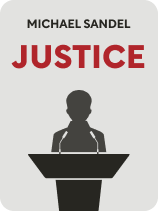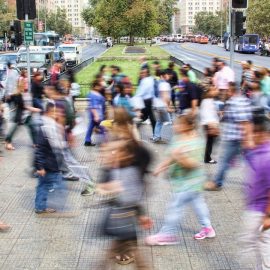

This article is an excerpt from the Shortform book guide to "Justice" by Michael Sandel. Shortform has the world's best summaries and analyses of books you should be reading.
Like this article? Sign up for a free trial here.
What is Michael Sandel’s philosophy of justice? What are the key tenets of Sandel’s communitarianism?
In Justice, Michael Sandel advocates his philosophy of justice and how he thinks it can create a more moral world—”communitarianism.” Communitarianism argues that the goal of the state is to create and preserve a community of citizens by promoting public engagement, kinship, and a sense of belonging.
To show how communitarianism works in practice, Sandel offers the following examples of how governments can create and preserve a community of citizens.
Regulate Markets
While Sandel doesn’t believe in abolishing free-market capitalism, he does suggest that governments thoroughly regulate markets. Under an unregulated market, people judge things in terms of monetary value or profitability rather than moral value or value to the community. Sandel argues that regulation, on the other hand, can prevent free-market capitalism from replacing community values and traditions with whatever is most profitable. This combines the free market ideals of libertarianism with Aristotle’s concern for preserving and encouraging the morality of citizens.
Address Inequality
Sandel warns that growing inequality damages communities. Increased inequality means people from different classes and backgrounds interact less—the rich have enough money to cut themselves off from everyone else. When the wealthy self-segregate, their taxes don’t contribute to public services in poorer places. These public services (things like schools, parks, and community centers) are crucial not only for improving poor people’s lives but also for helping different kinds of people mingle and strengthen their sense of community. This echoes Rawls’s liberalism—specifically the idea that economic inequality is just so long as it services the community as a whole (in this case, through taxes that fund public services).
Encourage Public Participation:
Sandel also suggests that governments encourage (through monetary incentives) or require acts of public participation like volunteering, community service, or political participation. Public participation means anything from government-created public works projects to campaigns encouraging people to organize politically. These efforts will not only get people interacting with other members of their community, but they’ll also encourage people to help each other and join in the larger project of being a citizen. This idea resonates with utilitarian thought by encouraging (or requiring) citizens to work toward maximizing well-being for as many people as possible via public projects.
| Is Michael Sandel’s Philosophy Progressive? Though Sandel doesn’t use the label, his practical political suggestions seem to at least partially match those of “progressivism,” a political ideology that argues for public projects and regulated capitalism in service of the public good. Let’s compare Sandel’s suggestions to some of the policies of the American progressive politician Franklin Delano Roosevelt (1882-1945) (FDR for short): 1) Regulate markets: Like Sandel, FDR believed in a heavily regulated capitalist system. But while Sandel believes in regulation as a way to preserve values, FDR mainly used regulation to try and prevent predatory business practices and ensure a degree of public well-being. For example, he signed the Fair Labor Standards Act of 1938, banning child labor and creating the 40-hour work week. 2) Address Inequality: Like Sandel, FDR argued that the government must take steps to address inequality, and he did this through measures like introducing a wealth tax and establishing a federal minimum wage. However, FDR didn’t do this to create a cross-class community as Sandel suggests—FDR believed that the relationship between management and labor was one of direct competition, and tried to make the government a neutral party in their disputes instead of trying to bring the two groups together as one unified community. 3) Encourage public participation: Sandel and FDR strongly agree when it comes to public participation and community. FDR encouraged public participation through government programs like the Works Progress Administration—programs that gave jobs to millions of Americans working on infrastructure projects. While he did this partially to ease unemployment and develop strong infrastructure networks, he also did it to create the sense of a collective project that America was working on—something that helped unite the country during the Great Depression. |

———End of Preview———
Like what you just read? Read the rest of the world's best book summary and analysis of Michael Sandel's "Justice" at Shortform.
Here's what you'll find in our full Justice summary:
- A philosophical look at the goal of our society and its laws
- What a moral and just government and society look like
- Sandel's suggestions for how to create a more moral world






